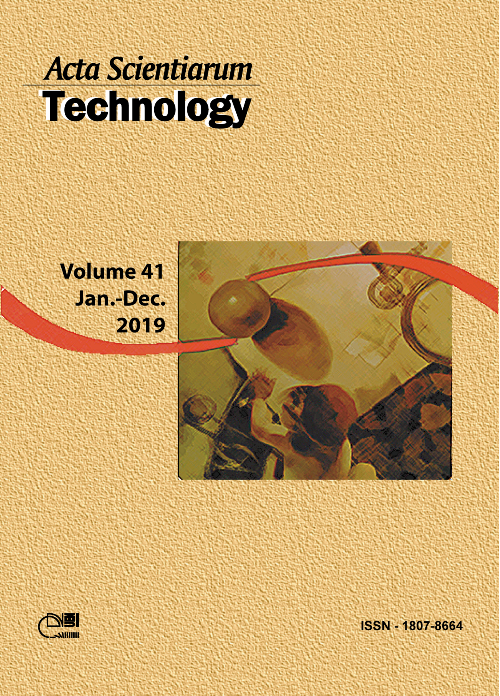Generalized Mixed Models - an application to longitudinal data of citrus canker
DOI:
https://doi.org/10.4025/actascitechnol.v41i1.41646Palavras-chave:
range, repeated measurements/measures, mixed models.Resumo
There are several techniques available for longitudinal data analysis. In the last decade, much emphasis has been placed on generalized mixed models. The present work is dedicated to give an overview of this technique, with emphasis on the formulation, interpretation and inference of the model. The guidelines are given for statistical practice in general. This form of modeling was applied to data from an experiment to evaluate the resistance of 12 varieties of sweet orange to citrus canker. The experiment consisted of provoking lesions on the leaves of orange trees and monitoring the diameter of the lesion over time. The adjustment of the observed data to the proposed model provided reliable results, since the assumptions necessary for the validity of the model were satisfied. Therefore, it can be said that this methodology is adequate to model the data, since it allowed the detection of the varieties more susceptible to citrus canker.
Downloads
Downloads
Arquivos adicionais
Publicado
Como Citar
Edição
Seção
Licença
DECLARAÇíO DE ORIGINALIDADE E DIREITOS AUTORAIS
Declaro que o presente artigo é original, não tendo sido submetido í publicação em qualquer outro periódico nacional ou internacional, quer seja em parte ou em sua totalidade.
Os direitos autorais pertencem exclusivamente aos autores. Os direitos de licenciamento utilizados pelo periódico é a licença Creative Commons Attribution 4.0 (CC BY 4.0): são permitidos o compartilhamento (cópia e distribuição do material em qualqer meio ou formato) e adaptação (remix, transformação e criação de material a partir do conteúdo assim licenciado para quaisquer fins, inclusive comerciais.
Recomenda-se a leitura desse link para maiores informações sobre o tema: fornecimento de créditos e referências de forma correta, entre outros detalhes cruciais para uso adequado do material licenciado.



















